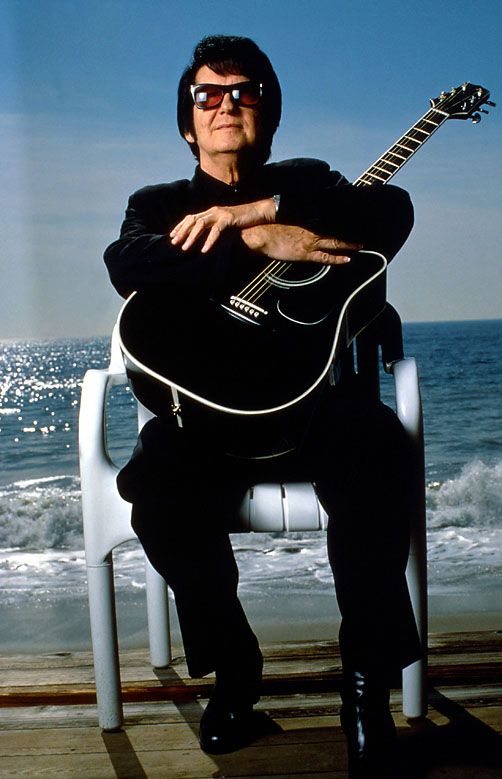Roy Orbison’s 1964 hit “Oh, Pretty Woman” is a song that has stood the test of time, embedding itself deeply within the annals of rock and roll history. With its infectious rhythm, deeply relatable lyrics, and Orbison’s iconic vocals, this track remains as captivating today as it was over six decades ago. Celebrated widely as one of the defining songs of the 1960s, “Oh, Pretty Woman” is more than a catchy tune—it is a cultural touchstone capturing an experience universally understood: the sudden, overwhelming allure of someone irresistibly attractive.
Released while Roy Orbison was already a well-established star, known for his rich, emotional voice and signature rock-ballad style, “Oh, Pretty Woman” marked a pivotal moment in his career. Orbison had previously scored hits with songs like “Only the Lonely” and “Crying,” but this song would define his legacy anew.
The genesis of “Oh, Pretty Woman” came through a collaboration with songwriter Bill Dees. According to music lore, Orbison’s wife, Claudette, remarked she was going shopping, and Orbison spontaneously said, “A pretty woman never needs any money.” This phrase sparked inspiration, and Dees and Orbison quickly crafted a song capturing the mesmerizing effect of a beautiful woman confidently walking down the street. In mere hours, the song was born with lyrics that felt conversational yet heartfelt, striking a chord immediately. The iconic opening guitar riff, instantly distinctive and memorable, set the tone for a song that stood out sharply amidst the rock releases of its time.
At its heart, “Oh, Pretty Woman” tells a simple yet resonant story: a man spots an enchanting woman and is so captivated that he sings his admiration aloud. He wonders if she will acknowledge him, smile his way, or even perhaps reciprocate his feelings. The lyrics balance between hopeful anticipation and a wistful sense of yearning, moving fluidly from playful confidence to tender vulnerability.
This snapshot of unrequited desire is so relatable. Almost everyone has, at some time, experienced the thrill of being stopped in their tracks by someone’s attractiveness. “Oh, Pretty Woman” distills that moment into a concise story filled with emotional depth, showcasing Orbison’s rare ability to inject genuine feeling into his rock music.
Musically, the song is a flawless fusion of rock and romance. The distinctive guitar riff grabs attention instantly, setting a swaggering, confident tone. Its simple but dynamic chord progression, alternating between major and minor chords, mirrors the emotional highs and lows of attraction. Orbison’s singing style, blending near-conversational speech with soaring notes, brings dramatic tension and vulnerability, which underline the song’s heartfelt message.
Orbison’s vocals are central to the song’s enduring power. His operatic range and emotive delivery add layers of drama, shifting from casual flirtation to deep yearning, making listeners feel the emotional journey alongside him.
Upon release, “Oh, Pretty Woman” shot to No. 1 on the Billboard Hot 100 and topped charts worldwide, cementing its status as an instant classic. The song has transcended its era, becoming a pop culture staple, covered by artists such as Van Halen and featured prominently in movies and television.
Its resurgence came in 1990, when the romantic comedy Pretty Woman, starring Julia Roberts and Richard Gere, used the track prominently. This association transformed the song into a pop culture phenomenon for a new generation, solidifying one of the most iconic pairings of song and film in cinematic history.
Moreover, “Oh, Pretty Woman” has influenced countless musicians. Its blend of rock energy and emotional vulnerability paved the way for later artists exploring similar themes, making it a touchstone across genres. It uniquely appeals to rock fans, casual listeners, and musicians alike—bridging distinct audiences.
The song’s timeless appeal lies in its universality. It resonates because it captures a simple, exhilarating moment: the instant captivation by another’s beauty, free from complexity or consequence. In today’s world of complex production and layered edits, “Oh, Pretty Woman” stands out for its refreshing simplicity and authenticity. Orbison’s unique voice and heartfelt emotion elevate the song to legendary status.
Ultimately, “Oh, Pretty Woman” is a timeless classic, connecting listeners across generations and cultures. It reminds us how music can magnify the smallest moments, making them feel grand and unforgettable. In a rapidly changing world, its enduring charm is a testament to the power of a well-crafted song destined to enchant listeners for decades more.
